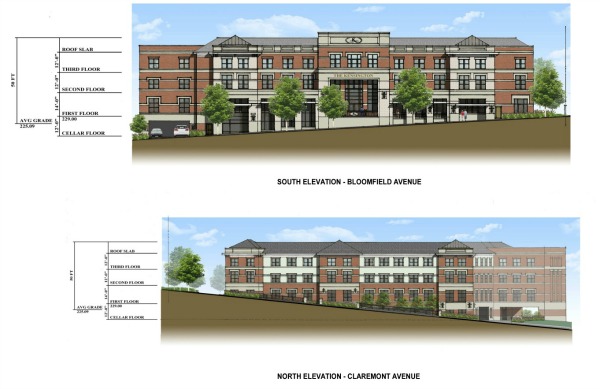
Kensington Senior Development LLC has filed a lawsuit against the Township of Verona over the Verona Board of Adjustment’s denial in January of a variance needed by Kensington to develop an assisted living facility on the property now occupied by the Richfield Regency.
In its complaint (Civil Part Docket# L-001710-19), Kensington names both the township and the Board of Adjustment as defendants. It asserts that its proposed 92-unit building is an “inherently beneficial use” of the site and that the zoning board failed to follow the advice of the board’s lawyer on that point, among other things.
Kensington Senior Development came before the zoning body last year for variances needed to build a facility that would cover virtually the entire site now occupied by the Richfield Regency. The building would have both assisted living and a memory care unit, but it would not be licensed as a skilled nursing facility. Kensington’s business model is to build assisted living facilities in urbanized locations on major roads and the Verona development would have been its fifth such facility.
But to operate in Verona, Kensington needed a major variance because assisted living is not a permitted use for properties that are zoned as Town Center, as the Richfield property is. Assisted living facilities are also not a permitted use anywhere else in town: Hillwood Terrace, which is often referred to as Verona’s senior housing, is actually a Section 8 property for low-income households.
New Jersey courts have acknowledged a concept known as “inherently beneficial use”, which would seem to direct zoning authorities to accept certain uses even if they are not part of the municipality’s zoning. Kensington argued that its project was such a beneficial use and Robert Gaccione, the Board of Adjustment’s lawyer, told the zoning body before it began its deliberations that housing for the elderly “is an inherently beneficial use”.
That, however, is not sufficient reason for approval. Projects also have to pass the so-called Sica balancing test, which seeks to assess the negative criteria of inherently beneficial uses. The Sica test compels zoning boards to identify problems that could be caused by granting a variance and determine what could be done to mitigate those problems. At its January 10 meeting, Board of Adjustment members found negative criteria in the project’s lack of a retail component and its impact on traffic in the area, and voted against awarding the D variance.
A representative of Kensington declined to comment on the lawsuit filing. Township Manager Matthew Cavallo also declined to comment on the suit. The Richfield Regency has said it will continue to operate as a catering facility for the foreseeable future.

